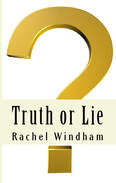
And Moses said unto the Lord, O my Lord, I am not eloquent, neither heretofore, nor since thou hast spoken unto thy servant: but I am slow of speech, and of a slow tongue.
And the Lord said unto him, Who hath made man's mouth? or who maketh the dumb, or deaf, or the seeing, or the blind? have not I the Lord? Now therefore go, and I will be with thy mouth, and teach thee what thou shalt say.
And he said, O my Lord, send, I pray thee, by the hand of him whom thou wilt send.
And the anger of the Lord was kindled against Moses, and he said, Is not Aaron the Levite thy brother? I know that he can speak well. And also, behold, he cometh forth to meet thee: and when he seeth thee, he will be glad in his heart. And thou shalt speak unto him, and put words in his mouth: and I will be with thy mouth, and with his mouth, and will teach you what ye shall do (Exodus 4: 10- 15).
What Moses saw as a deficiency God saw as a funnel for His glory. Haven’t we witnessed that numerous times? The special needs child bringing the most joy to the family, the loss of a job making room for a purpose-filled opportunity, the death of a loved one causing a survivor to turn toward God? Isaiah mentions light arising out of obscurity. It’s often the very thing that feels like a “have not” that is a doorway to God’s greatest plan. Jesus’ words to Paul ring true for us. HIS strength is perfect in Our weakness
Although our weakness offers us our greatest connection with God, we do have a choice in whether we surrender that area to God’s truth or insist on viewing it through the lie of inadequacy. Sometimes, as in Moses’ case, God will permit a crutch. But His permissive will does not offer the rewards of His perfect will. Moses’ comfort zone led him to lean heavily upon Aaron and upon his rod. The result was a continued awareness of his limitations and a failure to SPEAK to the rock in obedience to God. His trust in the rod overtook his trust in God’s ability to work through his weakness, and the consequence was the inability to enter the Promised Land. When we insist on our comfort zones, God may use us to accomplish His bigger purpose, but on a personal level, we miss out. Blessings that could have been ours remain untapped because our trust in God’s sufficiency remains incomplete.
Although Moses held tightly to his limitation, God used it anyway. God spoke to Aaron with words that passed through Moses’ lips. Moses wasn’t excluded from the confrontation of the enemy or from communicating God’s instruction to His people. Moses’ broken place was required to unlock the flow of God for Israel and to release them from Egyptian bondage. As a result, we get a glimpse of how awesome God wanted to be through him, flaws and all. Like He does us.
What if we surrendered our inadequacies to the God who can do “exceeding abundantly above all that we ask or think”? (Ephesians 3:20). What if we turned a deaf ear to the father of lies, and gave heed, instead, to the Voice of Truth? We could become “the head and not the tail…above only and…not beneath” (Deuteronomy 28:13). We could be confident that “God is able to make all grace abound toward (us); that (we), always having all sufficiency in all things, may abound to every good work” (2 Corinthians 8:9). We could “boldly say, The Lord is my helper, and I will not fear what man shall do unto me” (Hebrews 13:6). Leaning on the truth—what God says about our weakness--lassos the enemy's lies. It puts limits on our limitations and liberates us to be all that God created us to be (Ephesians 2:10; Psalm 139:16; Jeremiah 1:5).
Tip/Tidbit: In what areas do you experience insecurity? How different might you feel knowing God could use that weakness?


 RSS Feed
RSS Feed
